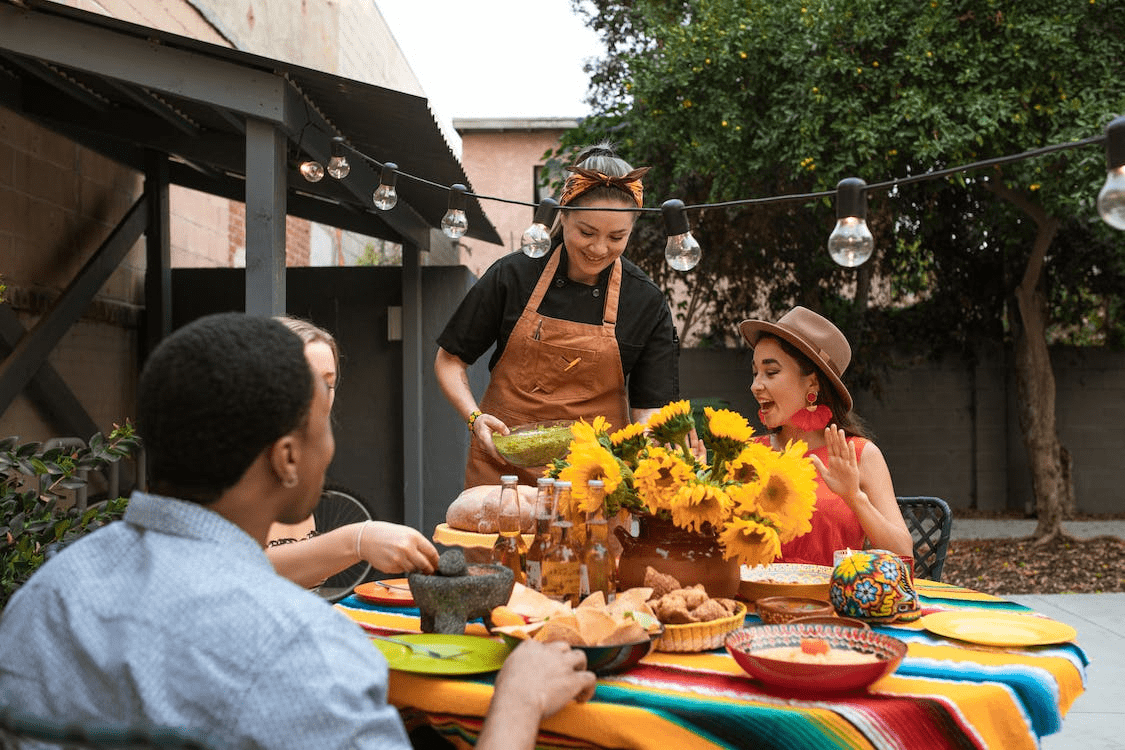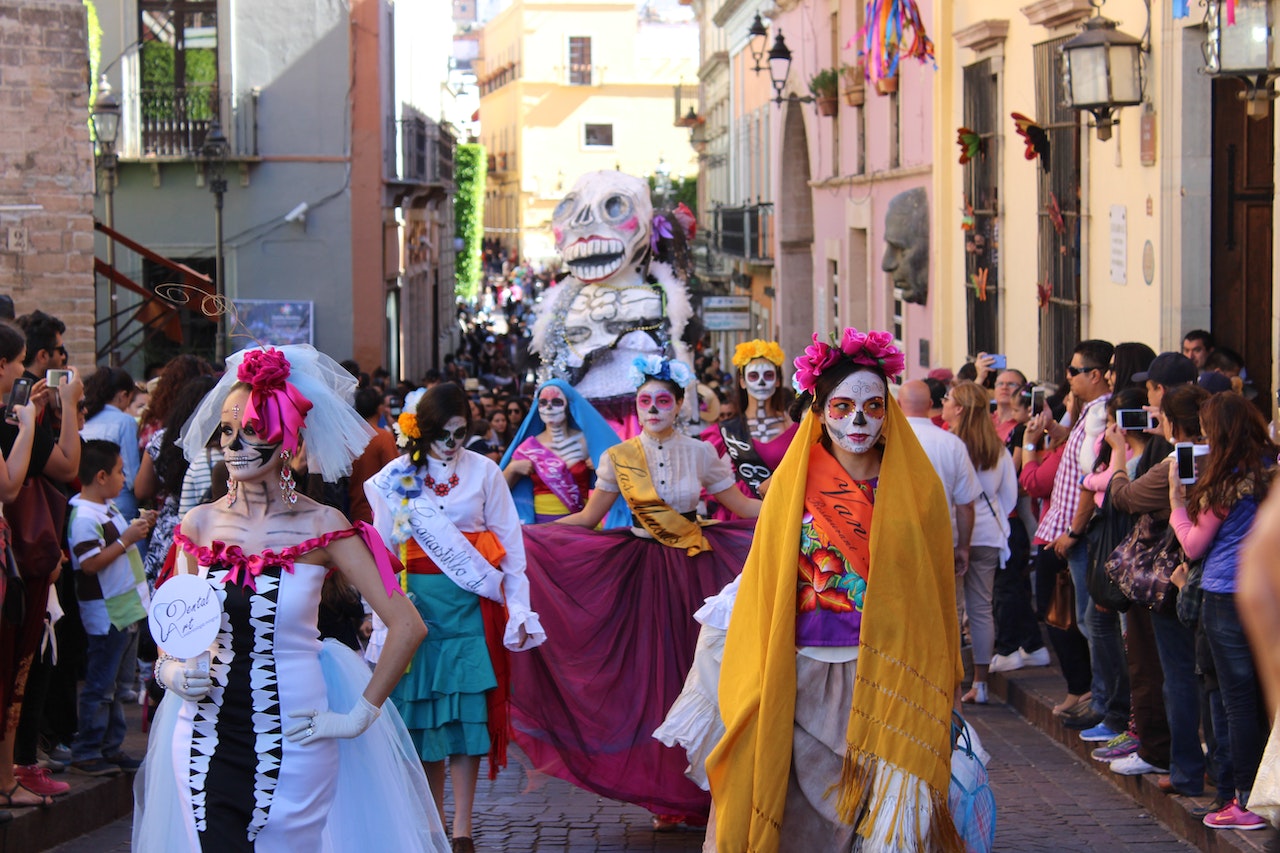It's All About Family: Get to Know More About Mexican Culture!
Mexican Culture, photo by RDNE Stock Project on Pexels
In every corner of the globe, diverse cultures are defined by their distinct values, traditions, and customs that distinguish them from one another. Within the vibrant tapestry of Mexico's heritage, its family culture shines as brightly as its spirited populace.
Bound by a deep-seated sense of connection, Mexican families thrive as close-knit, multi-generational units, upholding their religious convictions and treasuring time-honoured customs and festive celebrations. While deeply rooted in tradition, these families also embrace the winds of change brought by modernity, skillfully weaving together the old and the new to create a beautifully intricate mosaic of family traditions.
The Origins of Mexican Family
Origins of Mexican Family, photo by Andrea Piacquadio on Pexels
The origins of Mexican family culture can be traced back to the rich tapestry of ancient civilizations that once flourished in the Mesoamerican landscape. From the Aztecs' grandeur to the Mayans' mystique, these ancestral societies laid the foundations of contemporary Mexican family values.
In the heart of these civilizations, family was not merely a unit but a cornerstone of societal order. The collective extended far beyond immediate kin, encompassing blood relations and community members bound by a shared sense of belonging. Elders were revered as keepers of wisdom, passing down traditions and tales that continue to shape the values of modern Mexican families.
One of the defining features of Mexican family culture is the concept of "familismo." This value places family at the center of an individual's identity, emphasizing loyalty, support, and collective decision-making. Extended families often share homes or live within close proximity, fostering a sense of togetherness that extends beyond immediate family members.
Mexican Family Structure
Mexican Family Structure, photo by RDNE Stock Project on Pexels
The Mexican family structure is a complex and closely-knit network that serves as the cornerstone of society, reflecting the nation's history, culture, and values. Embedded in the roots of tradition and shaped by modern influences, the Mexican family structure is a tapestry of intergenerational bonds, roles, and responsibilities that continue to evolve in response to changing times.
At the heart of the Mexican family structure is the extended family unit. Unlike the nuclear family prevalent in many Western cultures, Mexican families often encompass multiple generations living under one roof or in close proximity. This multigenerational arrangement fosters a deep sense of interconnectedness, allowing grandparents, parents, and children to share experiences, resources, and emotional support.
Main Roles of Each Family Member in the Mexican Culture
Roles of Family Members in Mexican Culture, photo by RDNE Stock Project
In the intricate fabric of the Mexican family, each member assumes distinct roles that contribute to the cohesive functioning of the unit. Rooted in tradition and shaped by evolving societal norms, these roles reflect the values and dynamics of Mexican culture.
-
Elders and Grandparents
Elders hold a revered place within the Mexican family. They are often the keepers of ancestral wisdom, passing down stories, traditions, and cultural knowledge to younger generations. Respected for their life experiences, elders play advisory roles and their opinions are valued in family decision-making. Grandparents, in particular, often contribute significantly to childcare and family support, bridging generational gaps with love and guidance. -
Parents
Parents are at the core of the Mexican family, serving as providers, protectors, and role models. While traditional gender roles assigned distinct responsibilities, the modern Mexican family sees parents sharing these roles more equitably. Fathers are increasingly involved in domestic duties, child-rearing, and emotional support. Mothers continue to nurture and care for the family, but they also pursue education and careers, contributing to household income.
-
Children
Children are treasured and cherished within the Mexican family structure. They are taught the values of respect, family unity, and responsibility from an early age. Children often hold a deep sense of duty towards their parents and elders, and familial bonds are nurtured through shared activities and celebrations. -
Siblings
Sibling relationships in Mexican families are characterized by camaraderie, companionship, and mutual support. Older siblings often play caretaking roles for younger ones, and close sibling bonds endure throughout adulthood. These relationships contribute to the sense of togetherness that defines Mexican family life.
-
Extended Family
The concept of "familismo" extends to aunts, uncles, cousins, and even close family friends. These extended family members hold significance in the Mexican family structure, often providing additional sources of support and companionship. Celebrations, traditions, and family gatherings frequently involve extended family, reinforcing the interconnectedness of the entire kinship network.
-
Spouses and Partners
Marriage and partnerships in Mexican culture are founded on the values of commitment, loyalty, and shared responsibility. Spouses and partners work collaboratively to provide for the family's needs, raise children, and uphold cultural traditions. Marriage often involves not just the union of two individuals but the integration of two families, cementing the bonds of kinship.
-
Transnational Family Members
Migration, particularly to the United States, has led to the emergence of transnational families. Family members living abroad send remittances back home and maintain strong ties through regular communication and visits. These relationships reflect the enduring power of family bonds that transcend geographic boundaries.
Modern Mexican Family Culture
Modern Mexican Family Culture, photo by Jhovani Morales on Pexels
Gender roles within the Mexican family structure have significantly shifted in recent decades. While traditional roles often assigned distinct responsibilities to men as breadwinners and women as homemakers, the modern Mexican family is witnessing a transformation. More women are pursuing education and careers, contributing to family income and participating in decision-making processes. This evolution challenges traditional gender dynamics, promoting greater equality within the family.
Modern Mexican family culture is a dynamic blend of tradition and contemporary influences, reflecting the evolving nature of society. As Mexico experiences urbanization, technological advancements, and shifts in gender roles, the structure and dynamics of families have adapted to these changes while retaining core values that have long defined Mexican family life.
While extended families remain significant, there is a growing trend toward nuclear families, consisting of parents and their children. Economic factors, education, and employment opportunities often lead young adults to seek independence and establish their own households.
It’s All About Family
All About Family, photo by Los Muertos Crew on Pexels
In the heart of Mexico's cultural landscape, the tapestry of family culture weaves an intricate story of unity, evolution, and enduring values. From ancient civilizations to the modern age, the Mexican family's journey is a testament to the resilience of tradition in the face of change. Rooted in a deep sense of connection, this culture embraces both the wisdom of the past and the potential of the future.
As Mexico continues to evolve, its families stand as pillars of strength, united by bonds that transcend time and distance. In a world that constantly transforms, the Mexican family remains a steadfast source of love, identity, and unwavering support—a timeless emblem of the nation's soul.
SUGGESTIONS

